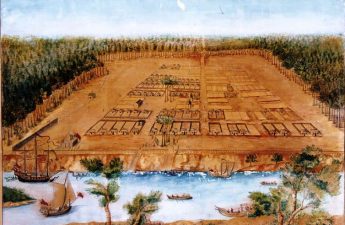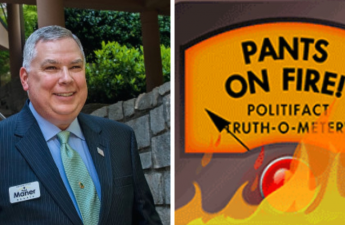 An old friend posted his review of Brambleman on my facebook timeline, and I wanted to memorialize it on Brambleman’s website before it was carried down the river and disappeared. Dr. Louie Crew is an emeritus professor of English Literature at Rutgers University. A prominent voice for reform in the Episcopal Church, Louie was and is a crusader for LGBT rights—from back in the days of Easy Rider in the Deep South!
An old friend posted his review of Brambleman on my facebook timeline, and I wanted to memorialize it on Brambleman’s website before it was carried down the river and disappeared. Dr. Louie Crew is an emeritus professor of English Literature at Rutgers University. A prominent voice for reform in the Episcopal Church, Louie was and is a crusader for LGBT rights—from back in the days of Easy Rider in the Deep South!
The Review
I just finished Jonathan Grant’s novel, Brambleman and thoroughly enjoyed it. It is a sustained, up-close, and dramatic look at racists, especially those in Forsyth County, Georgia, as well as a look at a few community organizers in greater Atlanta and their difficulties in opposing it.
Narrator Charlie Sherman frequently annoys the reader, and in most cases soon thereafter annoys himself; sometimes he finds credible ways to tell those parts of the story again with the new insights you have seen him pay for painfully. Sherman is a passionate bumbler with the grace to recognize his mistakes. He’s not an anti-hero, but a real one, who lives into his integrity one layer at a time.
The novel begins with Sherman agreeing to complete a book for someone else. One of Jonathan Grant’s other books is the scholarly book his father Donald Grant never finished, The Way It Was in the South: The Black Experience in Georgia. That book, like Brambleman, takes a hard look at lynching.
Sherman has married into one of the most heinous lynching families ever. Brambleman benefits from Don’s attention to minute accuracy and from his son Jon’s clarity in telling powerful stories.
My response: Thanks, Louie Crew. More than any other reviewer, you have connected with Charlie’s sketchiness. But can there truly be Grace without unworthiness? I told Dad when we lived on Troutman (remember the red and white house?) that I wanted to write a novel about lynching. That would have been 1974-75. I think he said, “Well, there’s plenty of material for you!” One thing that pushed me toward writing Brambleman was the fact that no one had ever written a book about Forsyth (there’s actually a pulp novel called “Savage Sundown,” but it doesn’t count in so many ways). Dad had only devoted a paragraph to the outrages of 1912. The Forsyth March in 1987 was the last thing Dad chronicled for his manuscript before packing up for China. Even as Forsyth has grown and become more diverse in the past few years, it continues to pose historical problems for many. Forsyth County’s history seems to be one of the Atlanta newspapers least favorite subjects. While many Forsyth Countians are open to finding out about their past, some have learned it’s better not to bring it up.
Louie Crew: Most of us fear guilt trips for sins we did not commit but cannot account well for our responsibility for the privileges those sins pass on to us in the third, and fourth and …. generations. I was one of the organizers of the Reparations Task Force in the Diocese of Newark a decade or so ago. We sponsored some powerful public events. People did come out for them, but only because we had some of the best speakers and leaders in the diocese behind them, but they were painful. Most came expecting to oppose what Suthunahs did and we focused almost exclusively on slavery in New Jersey. During that time, the New York Historical Society held two major exhibits on slavery in New York, one for the period before emancipation, and the latter for the fate of freed slaves in the prejudiced market of the city. I find it important to move beyond guilt to solidarity, beyond ad hoc responses to systemic responses….. I was particularly pleased (with) Brambleman’s redefinition of his own family. It’s a great read. I hope you get as many readers as Brambleman did!
Liked this post? Follow this blog to get more.



